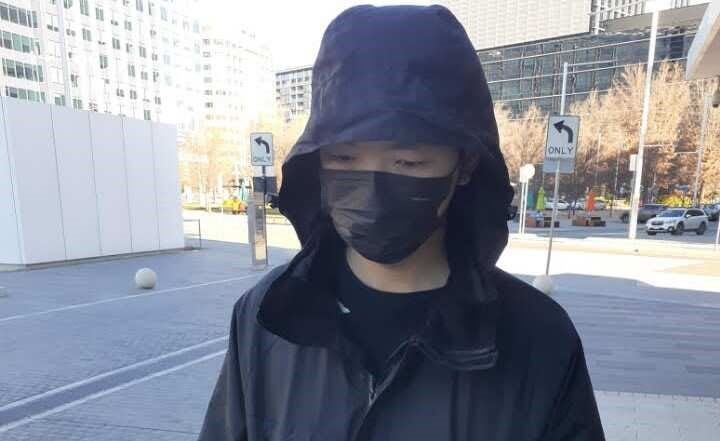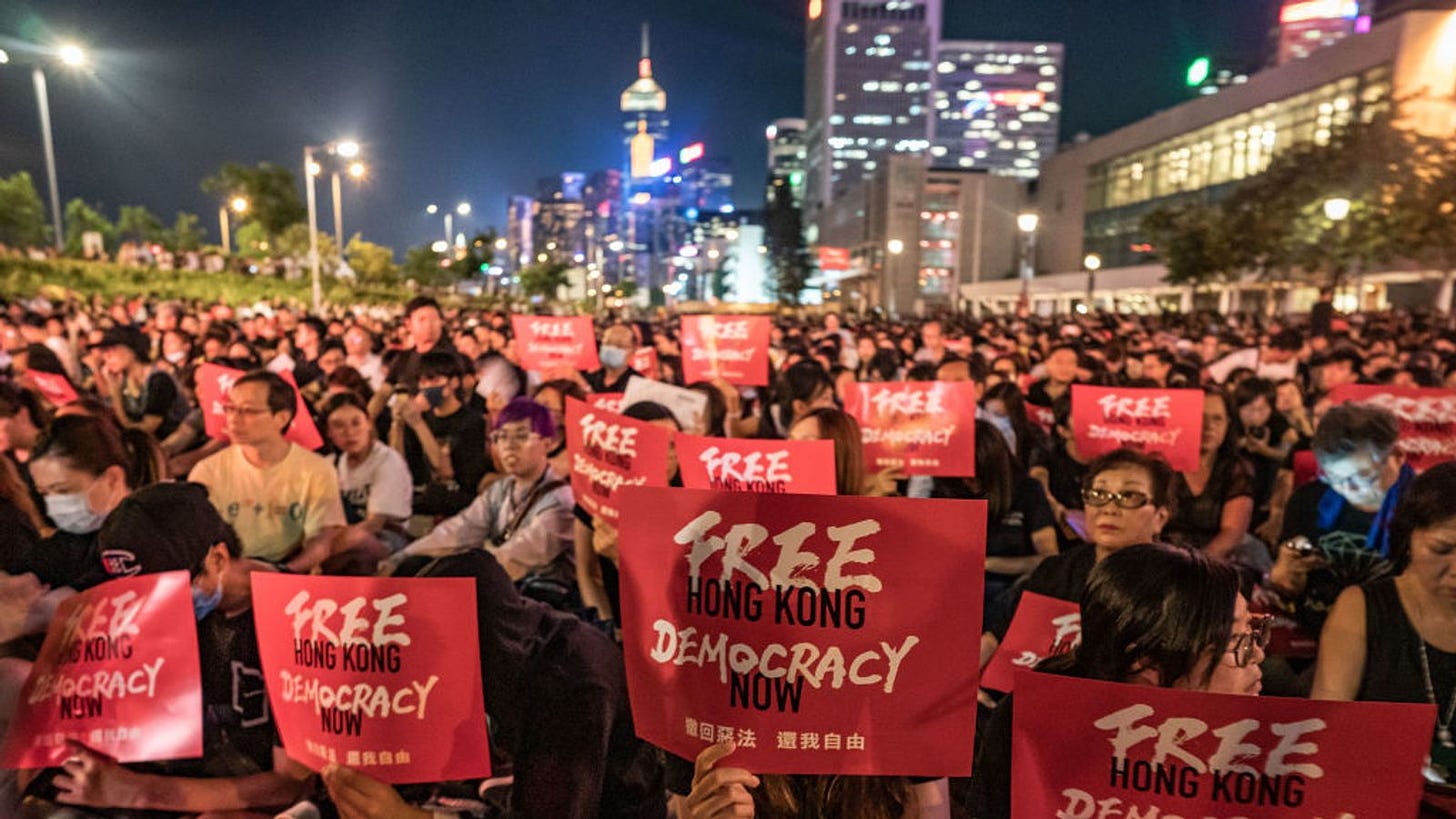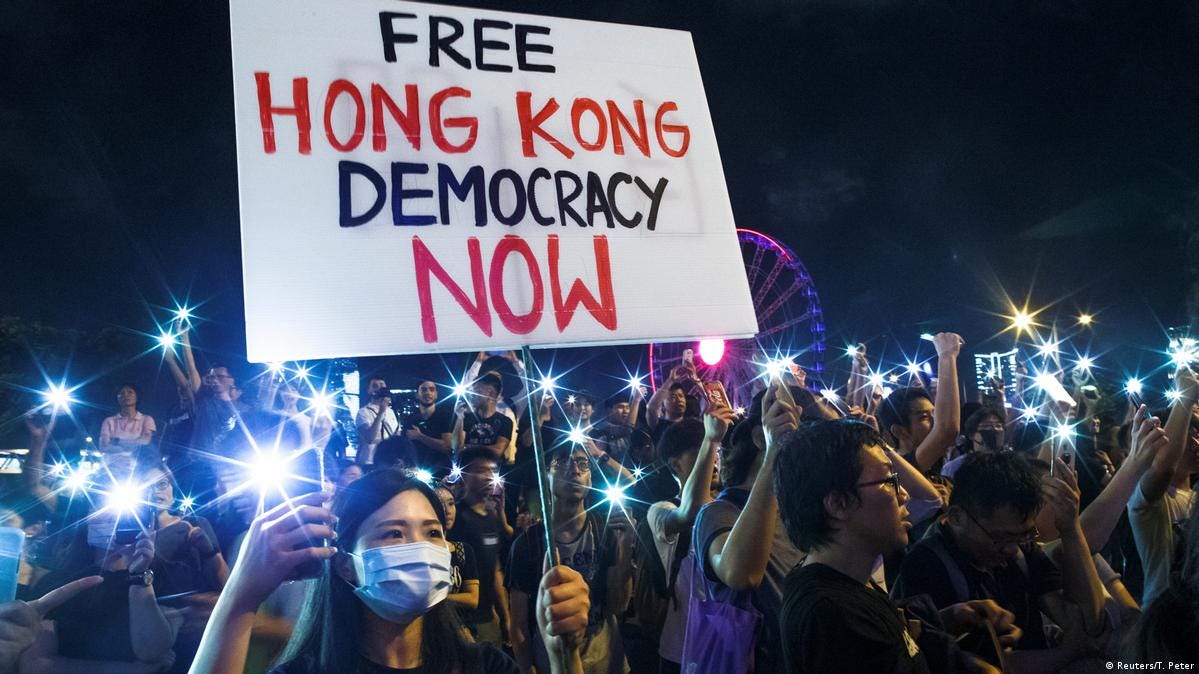With his face covered in goggles, protective gas mask and yellow hard-hat that symbolised the pro-democracy movement, Eldia was one of the students involved in the 2019 Siege of Polytechnic University in Hong Kong.
An estimated 1,300 people were detained during the turmoil. Eldia, 21, was among them.

Although he had taken part in the protest peacefully, he was arrested and ended up with charges of rioting, which would carry a maximum sentence of 10 years in prison. Coming from a respectable, educated, middle-class family, Eldia should have had a promising future in Hong Kong, prior to the breakdown of the rule of law in the formerly free and civilised city.
In a desperate attempt to escape the oppressive Communist Chinese regime, Eldia decided to break his bail agreement and flee to Australia on a visitor visa in 2020.
Two years on, his future remains uncertain.
Fearing incarceration upon returning to Hong Kong, he has submitted a protection visa application to the Home Affairs Department to safeguard himself from the world’s most totalitarian government.
Liberty Itch reached out to the Australia-Hong Kong Link, a non-profit organisation that works to promote the democracy movement in Hong Kong, to gain an insight into Eldia’s life as a political refugee in Australia.
Despite his young appearance, Eldia exudes a strength of character that belies his age. He has a quiet, unassuming demeanour yet demonstrates an unwavering commitment to advancing the prospects of Hong Kong.
Here is the interview with Eldia…
What activities were you engaged in to advance the democracy movement in Hong Kong?
I attended the demonstrations in Hong Kong on a frequent basis in 2019. I was non-violent the whole time. I took part in the protests, but I did not join the front line. The only thing I did was stay peaceful and helped other young people. I was in the vicinity of Polytechnic University to help students who were trapped in the university campus by hundreds of riot police. I now carry multiple democracy-related ‘criminal charges’. I was charged just for going to a protest, I actually did nothing but to provide moral support to students in need. But the police were charging young people at the scene who were simply wearing a mask.

Has the democracy movement completely stopped now in Hong Kong?
I don’t think the democratic movement in Hong Kong has completely stopped, but after the establishment of the Hong Kong ‘National Security Law’, Hong Kong has completely lost freedom of speech. In addition, there are often pre-trial sentences in the courts, which has been a major blow to the democratic movement in Hong Kong.
Even speaking online, you risk being arrested.
Are you in touch with other activists in Australia and overseas?
Being part of a pro-democracy organisation consisting of Hongkongers living in Australia, I feel privileged to be able to express my support for the Hong Kong diaspora and their cultural identity, as well as appreciate the democratic liberties of Australia.
What is life like as a political asylum seeker in Australia?
The thought of never being able to return to Hong Kong can be sad and heavy. I never thought that I would be a political refugee with ‘criminal charges’! Typically, Hong Kong students in Australia become skilled migrants, not political refugees who need protection.
But I feel very lucky to be able to live in Australia because I am free.
I think daily about the innocent people in Hong Kong facing years in prison. They aren’t forgotten.
I was already a student studying in Australia, so I have adapted to life here. I feel free, however, I am not allowed to go overseas as per the conditions of my protection visa.
Is Beijing still after you and do you feel safe?
I feel relatively safe in Australia because I’m not a public figure, so I haven’t been threatened too much. But make no mistake, I am currently a ‘fugitive’ in the eyes of the CCP Hong Kong Government. Needless to say, I am absent from the relevant court hearings in Hong Kong and worry that it may negatively impact on people around me because of my sensitive identity.
As we know, the Chinese Government’s tentacles are far and wide in Australia.
I am therefore staying low-key in supporting Hong Kong democracy movement overseas. Most people I interact with daily don’t know that I am an asylum seeker.
Where is your family and how do you stay connected with them?
My family is still in Hong Kong and I’m very worried about their safety. I hope they can leave Hong Kong as soon as possible.
Now I use anonymous software to communicate with my family and friends.
Are you still fighting for Hong Kong democracy? If so, how?
I’ll continue to fight for Hong Kong’s democracy and freedom until Hong Kong is liberated. I know very well that what we are facing is the world’s largest and the most-cruel dictatorship – Communist China. It will not be easy to liberate Hong Kong and it may not even be something that can be seen in my lifetime. But I will still insist on fighting for democracy and freedom, because many people have sacrificed their freedom for it.

If we give up, their sacrifice will be in vain. Therefore, I often remind myself to tell people in Australia what is happening in Hong Kong as much as possible, and let others know that democracy and freedom should not be taken for granted. Freedom is hard-won and easily lost. We need to continue defending our inalienable rights.
I intend to remain involved in operations conducted by Australian Hongkongers and joining with those who think similarly. I’m also looking to conduct more outreach activities in the future, for example, setting up a page devoted to my own observations and sharing them.
How do you build a fulfilling life in Australia going forward?
I plan to continue my studies and hope that I can make a positive contribution to Australia. I volunteer for the local community and through these volunteer activities, I have a better understanding of the lives of the locals, so that I can be more integrated into Australian life.
What else would you like the readers of Liberty Itch to know?
It’s no secret that China is the world’s second largest economy, and Australia cannot avoid economic and trade ties with it. Nevertheless, I plead with the Australian government to balance its desire for high-growth trade with the need to expose human rights abuses in China. And remember, in the last few years, Chinese infiltration and interference has been rampant, putting Australia’s freedom and autonomy in jeopardy. We must remember the people who have borne the brunt of the CCP’s oppression in Hong Kong, East Turkistan, Tibet, Taiwan, and other regions. Australia needs to break its reliance on Chinese trade and quickly diversify its investments.
